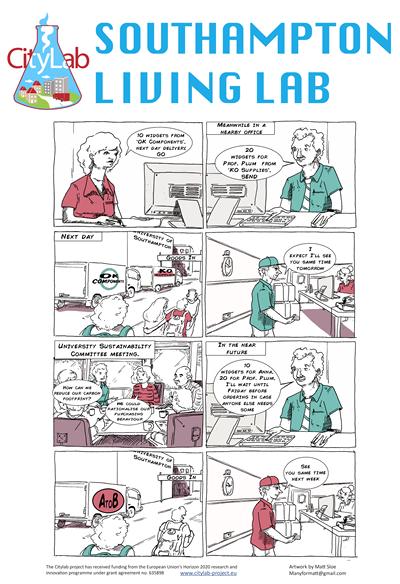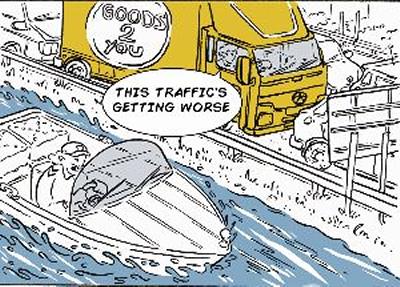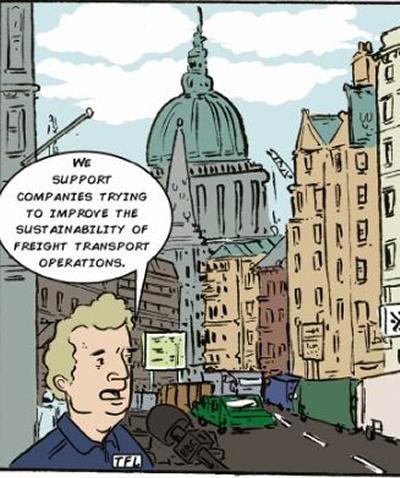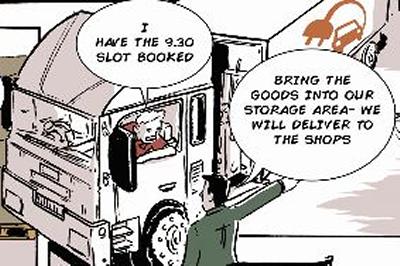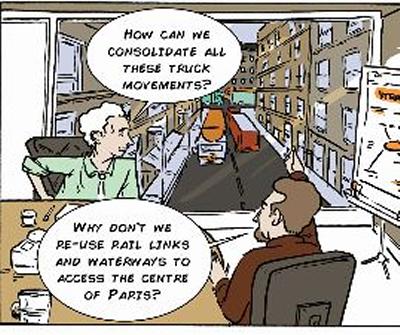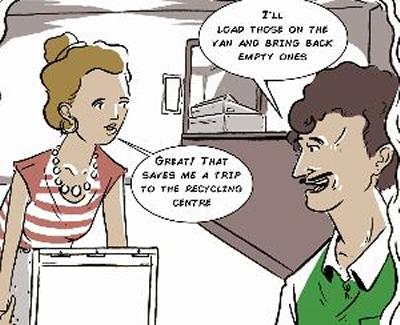The freight measures being planned in Southampton and the other cities are:
Southampton - Joint procurement and consolidation for large public institutions
Opportunities for reducing the freight impact associated with purchases of goods and services made by large municipal organisations will be identified, using the University of Southampton as a case study. This may include consolidation of ordering, suppliers and the use of the Southampton Sustainable Distribution Centre (SSDC), operated by Meachers Global Logistics on behalf of the city.
Amsterdam - Floating depot and clean vehicles (PostNL)
A floating depot will be used in Amsterdam for collection and delivery of parcels in the city centre. The floating depot will be moved by boat using the canal network and will be moored at several locations in the city centre. Small electric vehicles will undertake the last-mile deliveries.
Brussels - Increase load factors by utilising free van capacity
Small urban shops selling miscellaneous goods, currently serviced by Procter and Gamble, will be supplied with consumer goods by identifying and utilising the spare freight vehicle capacity of different third party service providers. The aim is to increase vehicle load factors by consolidating and bundling more efficiently.
London - New distribution models and clean vehicles (TNT and Gnewt Cargo)
Scalable and transferable business models for urban deliveries will be developed between a large carrier (TNT) and a small ‘last-mile’ carrier (Gnewt Cargo), using electric vehicles and cycles. The implementation will experiment with integrated and co-operative supply chain approaches between carriers.
Oslo - Common logistics functions for shopping centres (Steen & Strøm)
Common logistics functions at a shopping centre in Økern, Oslo will be introduced to reduce the dwell time spent by freight vehicles. The implementation will identify consolidation options for logistics service providers as well as opportunities for out-of-hours deliveries, resulting from the decoupling of the external and in-house transport legs of the supply chain to the shopping centre.
Paris - Logistics hotels to counter logistics sprawl (Sogaris)
The municipality of Paris, together with Sogaris, a specialist in real estate for urban and inter modal logistics, will develop a model for logistical zones and facilities, called ‘logistics hotels’, appropriate for dense urban environments, combining logistics with other activities such as offices, retail and public services.
Rome - Integration of direct and reverse logistics flows (Poste Italiane, Meware)
Iso-modular units and electric vehicles will be used in the city centre to improve waste collection and reverse logistics by seeking opportunities for combining with forward logistics. It is believed that this integration between direct and reverse logistics, together with the adoption of a closed-loop approach, will provide the basis for a financially sustainable business model.
